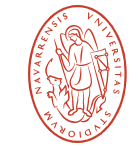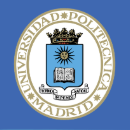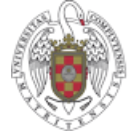Complutense University of Madrid is one of the oldest, largest and most comprehensive universities in Spain. Here is a detailed introduction:
Introduction and Overview
Student Size: There are about 90,000 students, making it the third largest university in Europe, with 9,000 employees, including 6,000 teaching staff and 3,000 logistics and administrative staff.
Campus Distribution: There are 3 campuses in total, the main campus is Ciudad Universitaria Campus, also known as Moncloa Campus, and there are Islas Filipinas Campus and Somosaguas Campus.
History
Origin and Early Development: Its origin can be traced back to May 20, 1293, when King Sancho IV of Castile founded the Studium Generale, which was the origin of Complutense University of Madrid. In 1499, Pope Alexander VI converted the Studium Generale into a university at the request of Cardinal Cisneros and named it Universitas Complutensis.
Relocation and expansion: In 1836, the school moved to Madrid and underwent several name changes and developments. In the 19th century, with the help of King Alfonso XIII, it was able to expand on a large scale, and the construction of a new university city began in 1927.
Setbacks and reconstruction: In 1936, the Spanish Civil War broke out, and more than 40% of the university campus was razed to the ground. After many years, it was finally rebuilt and opened in 1970. In 2013, the original name was used again.
School Strength
Teaching Quality: As the top public university in Spain, it provides a wide range of disciplines, covering humanities, natural and exact sciences, health sciences, social sciences and other fields. Its medicine, basic sciences, linguistics, media, literature and other majors are among the best in the world.
Faculty: It has many outstanding teachers, including Fernando Lázaro Carretel, president of the Royal Academy, and former president Pietro Rain Entrargo, as well as many Nobel Prize winners who teach here.
Scientific Research Strength: The school is a member of the Royal Spanish Association for Mathematical and Physical Research, with fruitful academic research results, actively participating in international cooperation and exchanges, and promoting the development of disciplines.
Institutional Nature
A public research-oriented, non-profit, coeducational higher education institution.
Educational Philosophy
The school focuses on cultivating students' comprehensive literacy and innovation ability, is committed to spreading excellent human culture, improving students' reform and enterprising awareness, encouraging students to actively explore and innovate, and cultivating talents with a high sense of responsibility and professional ability for society.
Key laboratories and disciplines
Key disciplines:
Medicine: The medical school has a long history, high teaching and research levels, and has trained many outstanding medical talents. Its affiliated hospitals provide students with practical opportunities.
Linguistics: It has a profound academic accumulation in Spanish language and literature, linguistics, etc., and is one of the important centers of linguistics research in the world.
Philosophy: The philosophy major has a strong faculty and fruitful research results, and has trained many scholars with important influence in the field of philosophy.
Physics: The Department of Physics has carried out in-depth research in theoretical physics, experimental physics, etc., and has achieved a series of important scientific research results, making important contributions to the development of physics in Spain.
Law: The teaching of the law major is rigorous, focusing on cultivating students' legal thinking and practical ability. Graduates have a high reputation in the Spanish legal community.
Key laboratories: The school has a number of advanced scientific research laboratories, such as the Materials Science Laboratory, the Biomedical Research Center, the Computer Science Laboratory, etc., which provide good conditions for the scientific research work of teachers and students.
Department Settings
The school's academic institutions are divided into 19 departments, 11 university colleges, 6 colleges, 20 research institutes and 10 professional training schools, covering a wide range of disciplines.
Ranking
2025 QS World University Rankings: 164th.
2021 Soft Science World University Rankings: 201-300th.
Expenses
Tuition fees: Undergraduates in Spanish public universities are generally free of tuition, and only a small registration fee is required. Tuition fees for master's and doctoral degrees are relatively low, and the specific fees vary depending on the major and course.
Living expenses: The cost of living in Madrid is relatively high, including accommodation, food, transportation, etc., which costs about 800-1200 euros per month.
Campus environment
Architectural style: The main campus is located in the University City of Madrid. The campus has a unique architectural style, integrating a variety of architectural elements and has a high artistic value.
Natural landscape: The campus is shaded by trees, with large lawns and gardens, providing teachers and students with a comfortable learning and living environment. The geese on campus have also become a beautiful landscape.
Teaching facilities: The school has modern teaching facilities, such as libraries, laboratories, gymnasiums, student dormitories, etc. The library is the largest in Spain, with 2 million books and 40,000 magazines, and is rich in resources.
-

University of Navarra
-

Autonomous University of Madrid
-

Polytechnic University of Catalonia
-

CEU University of San Pablo
-

Technical University of Madrid
-

University of Lleida
-

University of Barcelona
-

University of Oviedo
-

University of Valladolid
-

University of Salamanca
-

Mesoamerican University
-

Istmo University
-

Mariano Galvez University of Guatemala
-

Regional University of Guatemala
-

Galileo University
-

Francisco Marroquín University
-

Rafael Landívar University
-

University of the Valley of Guatemala
-

University of San Carlos of Guatemala
-

Technological Institute of Tlaxcala Plateau
-

Golfo University
-

Technological University of South Sonora
-

Technological University of Huejotzingo
-

Tizimín Institute of Technology
-

Chilpancingo Institute of Technology

